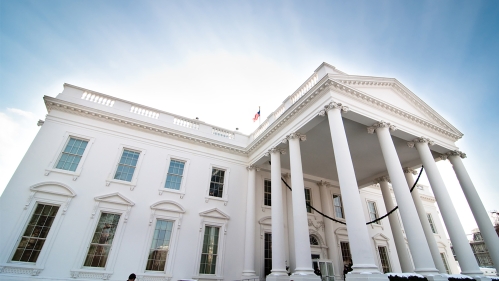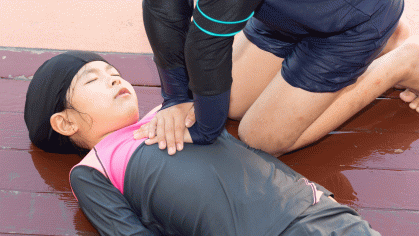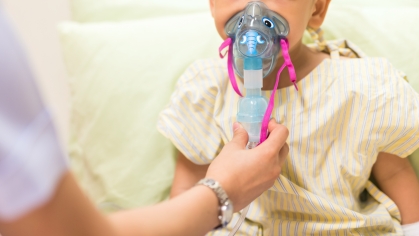White House Announcement on Cancer Moonshot Initiatives Highlights Botswana-Rutgers Partnership for Health

Two efforts launched by the university and the nation were featured during the U.S.-Africa Leaders Summit
The following includes excerpts from a newly released White House fact sheet that highlights several public- and private-sector initiatives to improve cancer outcomes in Africa. Two initiatives from the Botswana-Rutgers Partnership for Health are included in the announcement.
When President Joe Biden and First Lady Jill Biden reignited the Cancer Moonshot initiative in February, they aimed to reduce the death rate from cancer by at least 50 percent over the next 25 years and improve the experience of people and families living with and surviving cancer.
They called for everyone to do their part, including federal agencies and departments, private companies, health care providers, patient groups, philanthropies and others.
While the immediate goals are domestic, the ambitions of the Cancer Moonshot extend far beyond the borders of the United States, as the burden of cancer falls heavily to lower- and middle-income countries, where the majority of global cancer deaths occur. International work as part of the Cancer Moonshot is focused on equity and collaboration to increase access to prevention, screening, treatment and care for everyone facing a cancer diagnosis and their families worldwide.
For decades, the U.S. has partnered with African nations to meet shared health challenges. Last week’s U.S.-Africa Leaders Summit marked an opportunity to announce new actions and renewed commitments from the U.S. to combat cancer across the continent of Africa. These efforts, totaling about $200 million, include strengthening domestic public health infrastructure, building resilient health systems and investing in health workers as well as providing funding for robust and impactful initiatives throughout the African continent on cancer prevention, screening, treatment and research.
The private sector has stepped up as well, responding with roughly $130 million in new efforts. These include two initiatives from the Botswana-Rutgers Partnership for Health:
- The Botswana-Rutgers Partnership for Health is piloting a rapid “screen and treat” program for breast cancer to close the breast cancer screening gap in Botswana. This pilot program involving the Office of the President of Botswana, Botswana’s Ministry of Health, the University of Botswana, Rutgers Global Health Institute and experts from Rutgers will evaluate evidence-based interventions for breast cancer screening in an asymptomatic female population across 10 primary clinics in the Serowe region of Botswana. The initiative involves training nurses to administer clinical breast examinations and to provide breast self-care education to women in the hopes of impacting global goals to decrease the burden of deaths from breast cancer.
- The Botswana-Rutgers Partnership for Health launches Cancer Kitso, an oncology workforce training program. Rutgers Global Health Institute – with support from Bristol Myers Squibb and in partnership with the Botswana Ministry of Health and the University of Botswana as well as experts from Rutgers – will provide an in-demand education and training initiative that responds to the specialty workforce needs in oncology in Botswana and other African countries. The Cancer Kitso program will help to improve oncology and non-oncology health care professionals’ knowledge and skills in cancer care and prevention through a novel, hybrid oncology course on clinical management. In addition, the program aims to strengthen partnerships with the African Ministries of Health and academic institutions in sub-Saharan Africa to enhance the skills and capacity of public sector health care professionals in oncology. This program also serves to translate clinical science to evidence-based practices applicable for specific African settings, and to tailor to the unique needs of health care professionals in each setting.



